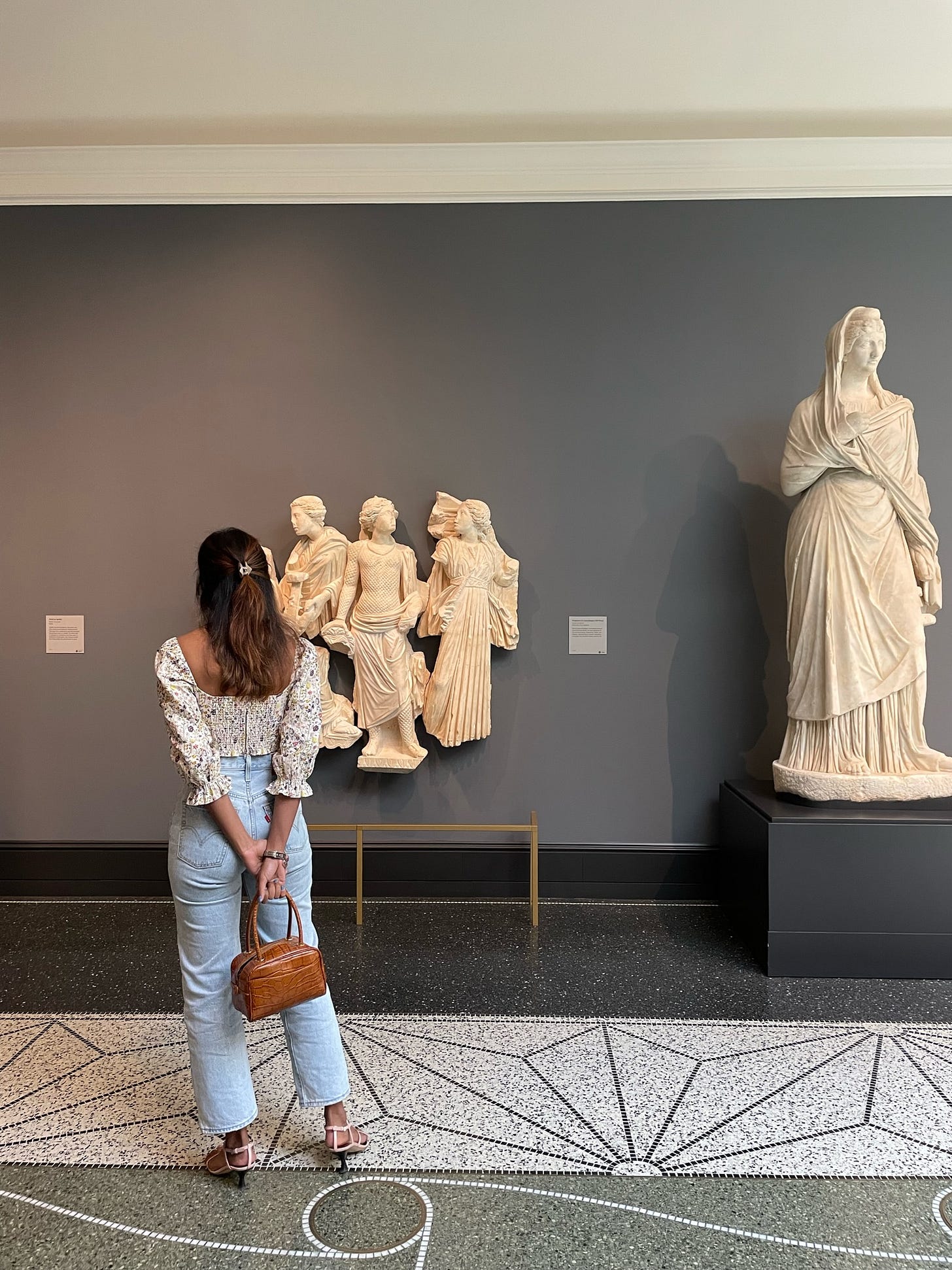on distress
In times of personal distress, I think of great women. I think of warrior Amazons seated on their shuddering horses, large words like honor and strength ballooning in their chests before galloping into battle. An Amazon depicted on ancient, red-burned pottery is always seen in battle movement. Her physical representation is one steeped in corporeal integrity, of being grounded by the strength of her body and its ability to withstand injury. For her, pain is just another beast to best. It is nothing like my distress. So, I move past the Amazon and her mythic, bare breasted invulnerability. I think of grey-eyed Athena. No, I think of Virginia Woolf and her pebbled pockets. I consider her labile motivations, her changeling behaviors, her ferocity of personality. Her body failed her constantly, but a constant thrum of thought and language echoed past her fingers and through her pen.
I feel that I have lost control over the lineaments of life when my body fails me. Suddenly my velvet heart beats inside a cage, my brain bumps against a cranium, my vertebrae curl kyphotic. My body no longer belongs to me. It becomes an assortment of steampunk circus props, an imaginarium of artifacts pulled from the earth, a department of curiosities. Magically, they all seem to cohere together. Such vagaries collaborate, and then fit my soul with an appropriate fleshy garment. But amidst such coherence, there is a kill switch. God was a cunning tailor, and he hid a kill switch somewhere beneath our chests when he fashioned our blood robes. Examine for a minute, the fatal flaw. The Greek is hamartia: to miss the mark, to err, to mistake. Hubris for Odysseus, wrath for Achilles. The gods could not have invented a better fatal flaw than awareness for Virginia Woolf.
[Image description: Thinking of old women at The Getty Villa Museum in Los Angeles. The museum has a fantastic collection of Mediterranean and Ancient Near East antiquities. Photo credit to lovely Forugh Z.]
She was always aware of the beating under her ribs, the blots in her brain, the endless ache in her lower back from stooping into the dark attic where we are trapped, and Prometheus-like, inventing fire to better illuminate our darkness. Every sentence she writes is a germination, something fresh and clean about how we live. I was always afraid of reading her, terrified of seeing some of my sadness, that grey obscurity of life, reflected back at me. But I grew up, and I realized that all one needs to read her, is a certain capacity for distress. Her awareness of pain is penetrative, alarming. She demonstrates all the emotional nicks and scratches we suffer from daily intercourse with friends, family, strangers. Then when a battle looms, and she and her steed incur several lancing blows, she writes raw, journalistic dispatches of her wounds to us. She is not invulnerable to pain. She does not pretend a strength that she does not have.
I wonder, did the Amazons acknowledge pain? They always behaved so remarkably under physical duress. Maybe they were like our mothers, insistent that nothing was wrong, that their bodies did not cycle through pain every four weeks like werewolves hooked on the phases of the moon. Keep your despair private and brief, they teach. But Virginia – a great, distressed woman if there ever was one – teaches me something else. Her brain battered her body with words. She teaches me to live through the pain inherent in my body, with the foreknowledge of the kill switch and the certainty of future distress. If I do, and if I keep going, something deep and true can be excavated from my imagination.

